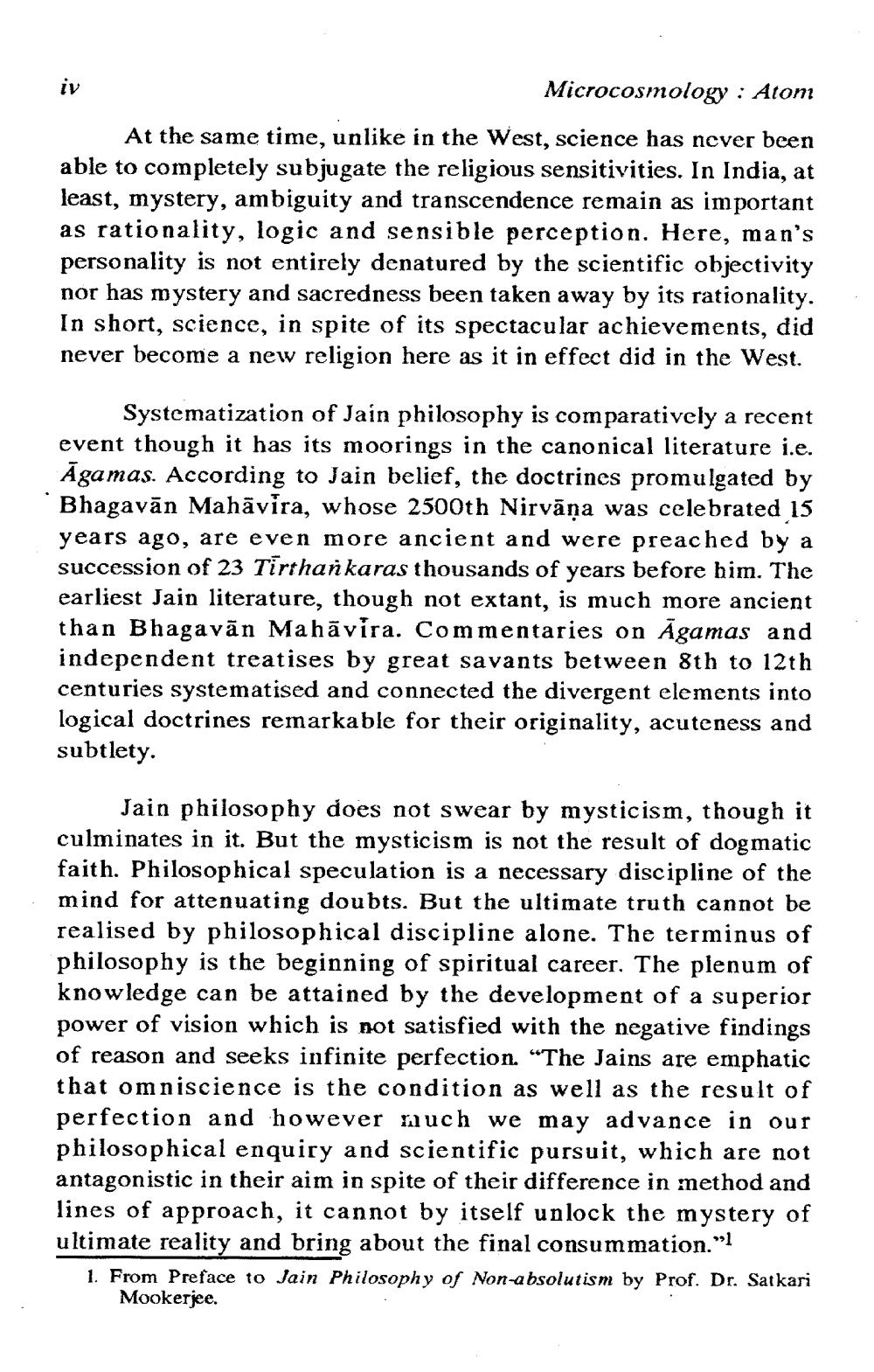________________
iv
Microcosmology: Atom
At the same time, unlike in the West, science has never been able to completely subjugate the religious sensitivities. In India, at least, mystery, ambiguity and transcendence remain as important as rationality, logic and sensible perception. Here, man's personality is not entirely denatured by the scientific objectivity nor has mystery and sacredness been taken away by its rationality. In short, science, in spite of its spectacular achievements, did never become a new religion here as it in effect did in the West.
Systematization of Jain philosophy is comparatively a recent event though it has its moorings in the canonical literature i.e. Agamas. According to Jain belief, the doctrines promulgated by Bhagavan Mahavira, whose 2500th Nirvāṇa was celebrated 15 years ago, are even more ancient and were preached by a succession of 23 Tirthankaras thousands of years before him. The earliest Jain literature, though not extant, is much more ancient than Bhagavan Mahavira. Commentaries on Agamas and independent treatises by great savants between 8th to 12th centuries systematised and connected the divergent elements into logical doctrines remarkable for their originality, acuteness and subtlety.
Jain philosophy does not swear by mysticism, though it culminates in it. But the mysticism is not the result of dogmatic faith. Philosophical speculation is a necessary discipline of the mind for attenuating doubts. But the ultimate truth cannot be realised by philosophical discipline alone. The terminus of philosophy is the beginning of spiritual career. The plenum of knowledge can be attained by the development of a superior power of vision which is not satisfied with the negative findings of reason and seeks infinite perfection. "The Jains are emphatic that omniscience is the condition as well as the result of perfection and however much we may advance in our philosophical enquiry and scientific pursuit, which are not antagonistic in their aim in spite of their difference in method and lines of approach, it cannot by itself unlock the mystery of ultimate reality and bring about the final consummation."1
1. From Preface to Jain Philosophy of Non-absolutism by Prof. Dr. Satkari Mookerjee.




